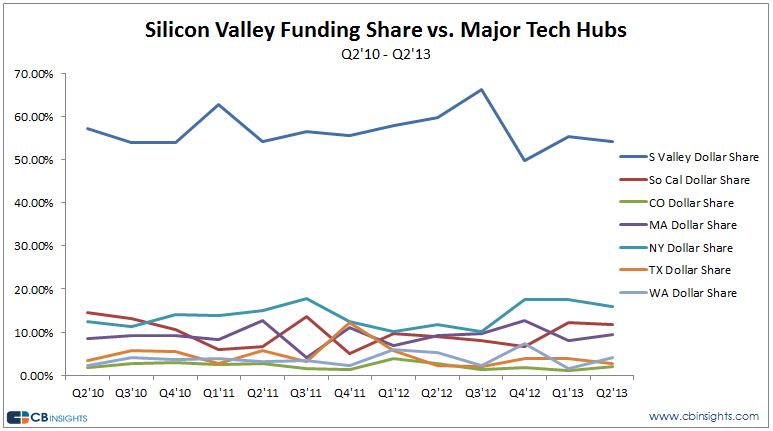
by tomnora | Dec 19, 2014 | Business Development, early stage, founder, interviews, Launch, Revenue Growth, Scalability, startup, startup CEO, Tom Nora
I’ve been spending a lot of time in the WordPress as a development platform world lately, kind of a new thing for me.
I’m finding many unexpected business advantages in this world for a group of websites I am building to bootstrap a few “baby startups”.
What this has done for me is vastly increase my interest in tactical data-driven marketing on the web –– growth hacking, content management, agile iterative web development and marketing, and yes, even SEO.
The ecosystem of WordPress is actually fascinating and lots of fun, full of solo-prenuers, bootstrapers, hackers, marketers and doers. It’s a somewhat different world than the VC funded startup world that is my day job.
The link below is one of the best interviews I’ve seen, from Collis Ta’eed, a very humble and honest guy who started Envato, a marketplace for web dev themes and many other creative resources.
In a very short time he covers to first 6 months of his company, unafraid to discuss failures, missteps and instances of pure luck. This is the opposite of many startup interviews where the founder claims brilliance and a smooth path and takes credit for everything.
Very inspiring, check it out…
http://wptavern.com/ceo-and-envato-co-founder-collis-taeed-on-the-first-6-months-of-envato

by tomnora | Feb 26, 2014 | AdTech, Angel Investor, Business Development, CEO Succession, early stage, founder, Hawaii, Launch, SaaS, Scalability, startup, startup CEO, Tom Nora, venture
Here are a few traits to try to emulate if you want to be a successful startup guru. Success may be financial, fulfillment of a life goal or even altruistic. Success will begin to create itself if your heart is in the right place…
Take a look at the 9 things below and send me feedback on your thoughts.
1… Genuineness, honesty.
2… Humble openness to feedback. When I returned to LA in 2011 after being away for many years, I was smacked in the face by the volume of young startups that were in their first stages; and many of them sought me out. After a bit I noticed a dangerous trait in many of them – a false confidence and no ability to hear constructive criticism. The attitude was “just give us funding” even though I could see several fatal flaws that they couldn’t.
Being closed to feedback in itself is a sign of bad health, a fatal flaw. You don’t take all advice given to you of course, but you listen to it, calibrate it, mix it in with everything else you know that they don’t. You also have to know whom to spend your time with, many of the wrong people will want to offer advice, mostly for the wrong reasons.
3… A set of doctrines. It’s almost corny to see in many companies; they’ve worked out an internal lexicon, code words, project names to make things more unique and understandable. It speeds up communication. It
4… Taking everything from 90% to 110%. This is one I often see in looking under the hood of successful startups. It’s like a beautiful restored car that has every detail perfected when you inspect it further. The wiring, the upholstry, the under carriage – all the little details that most never see. In startups there is a beauty when you see these little things. I can think of many startup companies
5… Belief in the Idea. Belief that you have something unique, that the world, or part of the world, really does need this new thing/method/service. This is a key factor in many of the successful kickstarter products.
6… The journey is the reward. The #1 request I get from would be entrepreneurs startups is ” how do you do it, what does it take to build a successful startup, what should I do differently? They want all of these answers in one sitting, over lunch, and then want to go off and pour them on top of their startup like syrup. Great questions, but it doesn’t work like that. My answer is this… Get up every morning, work very hard (see 3. 90 to 110) make the best decisions you can, cry a little bit, then do it again the next day. Do that for several months continuously. Enjoy the process with its imperfections, if nothing else you’ll create a rhythm for yourself and your team.
7…Self Confidence. This is the most important trait of all. Unyielding confidence, an authentic, real confidence that comes from deep down inside is what takes you through the bumps and setbacks. Think of a topic you know that you have down cold. Nobody can tell you you don’t know this.
Not false confidence, that will do the opposite and cause failure.
8… Location. Being located in the right ecosystem helps foster self confidence; you know it can be done there, there’s success in the ether, those ahead of you help you make things happen, critique you,
9… 5 Best Friends. You want 5 people in your business-sphere that you can go to, brainstorm with, respect, and drive your progress. They must be influential, cognizant, and you must reciprocate, pay it forward. Don’t compromise here. If you don’t have 5 then go find them.
Contact me at t@tomnora.com

by tomnora | Feb 20, 2014 | Angel Investor, Business Development, CEO Succession, early stage, founder, Hawaii, Launch, SaaS
 Last week I witnessed again the difference between 2 people meeting in person compared all other forms of communication we currently employ.
Last week I witnessed again the difference between 2 people meeting in person compared all other forms of communication we currently employ.
It’s amazing to see the power of the connection between 2 people in proximity to each other. In the startup world, it seems to be winning over the bits and bytes style. I’ve discounted the value of face to face recently as much as anyone, leaning heavily on asynchronous electronic communication for much of my business and personal life, and even using broadcast communication (twitter, Facebook, LinkedIn, Pinterest, email, …) to replace individual communications. But we all should rededicate ourselves to the face-to-face – the random, the first time, the networking, the required, the “have a good weekend”. Connecting on LinkedIn or FB is great but usually leads to few subsequent actual interactions. Apple’s face time is bridging the gap nicely, but still isn’t the same. Meetup.com and Eventbrite, founded on this principle of meeting in person as a response to too much Internet meeting, has helped to spawn, grow and change thousands of startups.
So, back to last week – at a startup mixer I was walking past someone headed to my seat, and we kind of got stuck in the crowd face-to-face. He had on a name tag, I didn’t. We couldn’t move. So he stuck his hand out to say hello, and we wound up talking for 10 minutes and definitely made a bit of a connection. We found several things we had in common, most people do. Since then we have met and emailed and referred business to each other, all from a semi-random meeting.
We never would have connected otherwise. If we saw each other on the street or lived on the same block we probably would just walk on by. So get out there, go to things that you like and are interested in. Barriers will melt. @tomnora
![Silicon Valley Uber Alles? I think so… Some of their Secret Weapons.]()
by tomnora | Sep 11, 2013 | Angel Investor, Business Development, CEO Succession, Drupal, early stage, founder, Hawaii, Jobs, Launch, Revenue Growth, Scalability, startup, startup CEO, Tom Nora, venture
[contact-form][contact-field label=’Name’ type=’name’ required=’1’/][contact-field label=’Email’ type=’email’ required=’1’/][contact-field label=’Website’ type=’url’/][contact-field label=’Comment’ type=’textarea’ required=’1’/][/contact-form] Can any other region “catch up” to Silicon Valley, or be the next Silicon Valley? Statistics show that it’s probably kind of futile to even try. Many have tried, but must be content with their small market shares. How can other regions will ever match the MACHINE: Stanford, Andreesen, Draper, Valentine, Doerr, Facebook/Apple/Google Millionaires, 4 Generation VC firms, Hardware/Software partnerships, over 100 Billon $ market cap cos.

Because high tech and software industries are now being seen as lucrative, job creating, imperative and oh so sexy, many regions are trying as never before to get in on this – mobilizing their governments, old school industries, universities and grandmas to unite to be the next Silicon Valley, calling themselves Silicon- Beach, Forest, Plains, Alley, Prairie, Coast, etc. These towns are setting their expectations way too high while the real Silicon Valley giggles at the sight.
Here are some of the secret weapons that make Silicon Valley stronger than any other “region” and act as its barriers to entry:
1. Silicon – Uh, yeah, that word? It’s what started all this. Silicon Valley launched and was launched by the mainstreaming of the Silicon chip over 50 years ago, which is now part of everything. There was no other part of the planet where anything close in innovation, design manufacturing, equipment, marketing and sale of semiconductors has emanated from. This foundation still drives the area and the world, even thought it gets less attention now than the software side.
2. 100 Years of Growth – It all began with military electronics, low cost housing, lots of empty land and Stanford University. It has spread way beyond to the east bay. San Francisco, over 50 universities and trillions of dollars in revenue. The growth has had bumps but over time has increased more steadily than any other economy in history.
3. Recruitment – Most of the leaders in SV are from elsewhere because Silicon Valley aggressively acquires the best from all over the world. Why not? Via Stanford, Berkeley, Facebook, Google, recruiting Harvard and MIT undergrads, their wonderful PR machine, advertising free meals, free car washes, free dry cleaning, free day care. $150,000 salary right out of college. Unlimited vacation. Where else can you gat all this?
4. Stanford – Not sure this even needs explaining, but Stanford has been a wole new entity in the past 20 years, beyond anyones imagination in wealth creation, funding, computer science, a recruiting engine into SV then on to local companies, pride, confidence, location.
5. Money, money, money – There are so many giant sources of money in SV that it’s staggering. VCs of course, Angels, they invented the term Super Angel, San Francisco, Real Estate leverage, IPO millionaires, corporate funding, Asian and European money, and on and on.
6. Tolerance for Weak Links – Here’s one most people don’t know – most people in SV aren’t stellar; I know several weak players who fake it well and are millionaires or millionaires-to-be just because they’re in the right zip code. The public tagline is everybody has a high IQ, but in reality there are lots of dwebes running around – I know, I’ve managed plenty of them. SVs leaders smartly realize the win ratio can be pretty low if you have a few enormous winners. Most SV projects die, most SV companies die, but if you build the algorithm to plan for this you’ll put more possible winners in play. So what if a few totally unqualified employees that snuck in make a few million. Like any organization, there are several who skate by or get by on good politics. That’s OK if you plan for it, “engineer” for it.
That’s just 6, there are plenty more reasons why there will only be 1 Silicon Valley for along time to come. The best answer for any other local economy is to just make the most of who you are, embrace your own identity, partner with Silicon Valley. And don’t use the word “silicon” in your name. Take Boulder, Colorado as a model, they’ve successfully created their own very strong economy for startups. There’s a startup for every 50 or so people there. They have all the pieces and they are heavily connected to Silicon Valley without envying them.
@tomnora

by tomnora | Aug 22, 2013 | Angel Investor, Business Development, early stage, founder, instagram, Jobs, Launch, Revenue Growth, startup CEO, Tom Nora, venture

This has organically happened a couple of times for me – someone I’ve worked with in the past asks me to write them a recommendation and then spontaneously returns the favor. It’s a very cool gesture and it reinforces the relationship for the future.
Below is an example for a startup entrepreneur I just went through a short mentoring process with, Greg Weinstein. Greg will do very well with his company, I could’ve written a lot more about his attributes.
I recommend (get it?) you try this – swap a recommendation with close present or past colleagues; it will enhance both of your social business circles and create new connections.
It’s hard to derive extra value on linkedin, rise above the fray – this will help you do it.
#networking #linkedin #social_marketing
– – – – – – – – – – – –
Gregory A Weinstein has recommended you on LinkedIn
Gregory A Weinstein
Gregory A Weinstein Founder and CEO, One Fulfilling Life
To: Tom Nora
Date: August 22, 2013
Gregory A Weinstein has recommended your work as Founder, Marketing, Community Development at Startup Workshops.
Dear Tom,
I’ve written this recommendation of your work to share with other LinkedIn users.
Details of the Recommendation: “During the early and critical stages of the conception and start up of One Fulfilling Life, Tom provided us with thoughtful, wise and nurturing insight and guidance. He was our “Board of Directors” and the fit seemed very natural and intuitive.
It was an awesome opportunity and I relish the experience. His guidance saved us a lot of time and money and more importantly kept our momentum moving forward in the face of what could have been crippling obstacles. If your a tech start up and especially if this is your first business venture Tom’s your man. Catch him if you can!!!!!
Thanks Tom”
Service Category: Business Consultant
Year first hired: 2013
Top Qualities: Expert, Praxis High Integrity Systems

by tomnora | Aug 9, 2013 | Angel Investor, CEO Succession, early stage, founder, Hawaii, Launch, Revenue Growth, startup CEO, Tom Nora
I’ve advised several founders from 500 su and they’ve all said Dave is fair, honest, easy going, and lets you know when you’re cheating yourself. Most venture capitalists will take a little advantage of naive entrepreneurs so this was surprising to hear over and over.
Dave McClure should be thought of more as a movement leader than asking how he negotiates. He doesn’t really have to use any tricks, the whole thing is a brilliant maneuver. Remember, this thing didn’t exist a few years ago.
By design his operation is humble (I know, I’ve lived on Castro Street twice!). He created a new layer for people to get a shot at launching a Silicon Valley start with some cash and mentoring that they never would have otherwise had.
Negotiate? He could be more hard-ass but isn’t. He could wear contacts (or real shoes) but doesn’t. He created his own ecosystem that spreads out all over the world now, and even used some of his own money.
The environment allows people learn how to negotiate. And to fail softly if they fail, which is almost critical to later success.
500 startups went from strange idea to an integral part of the world startup ecosystem. Not many major players are not involved or connected in some way. One of the things Dave doesn’t charge for in his valuations is the connections to that world, and for that he will surely make everyone involved a bit of a winner.
Edit
@tomnora







